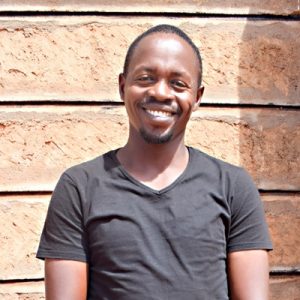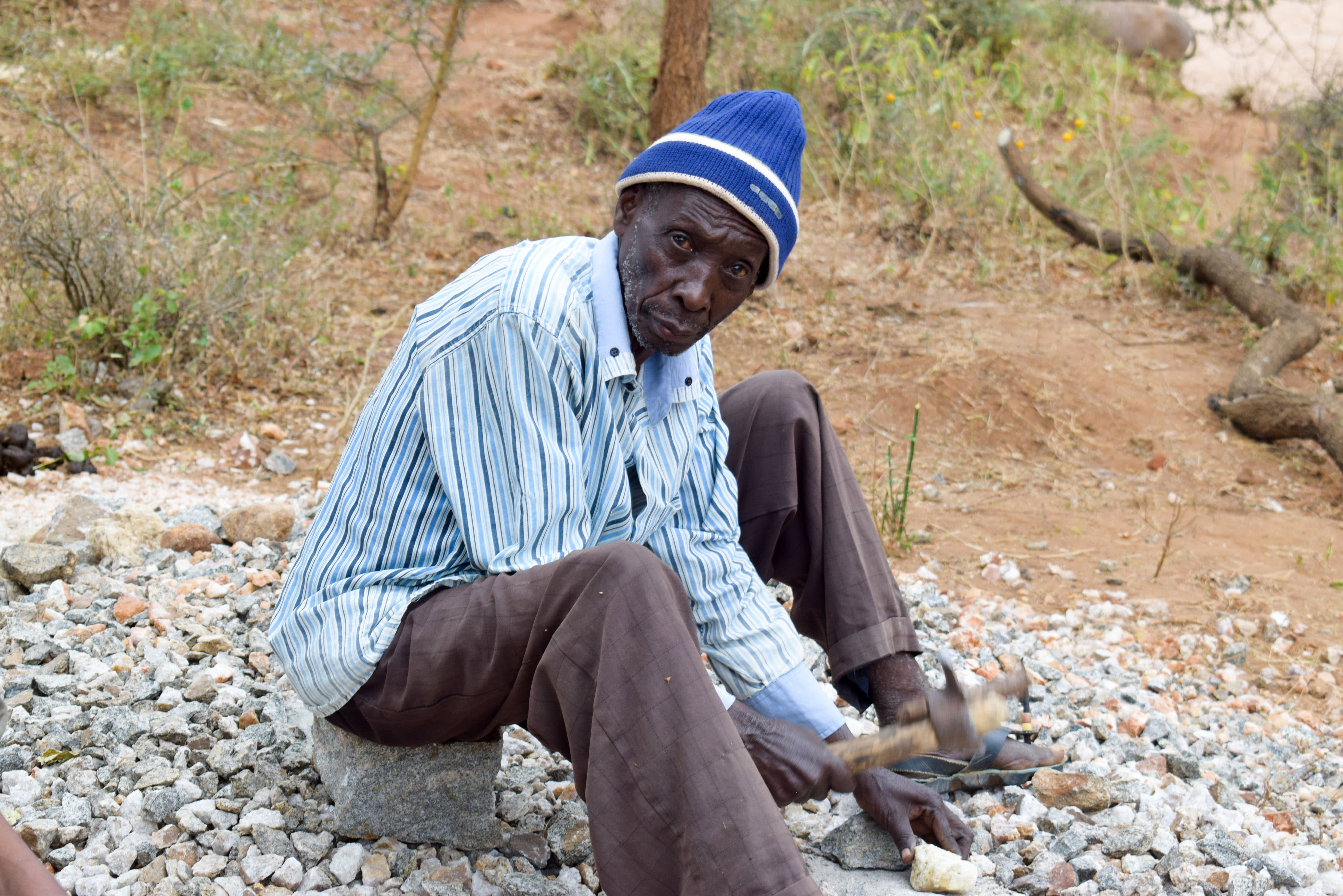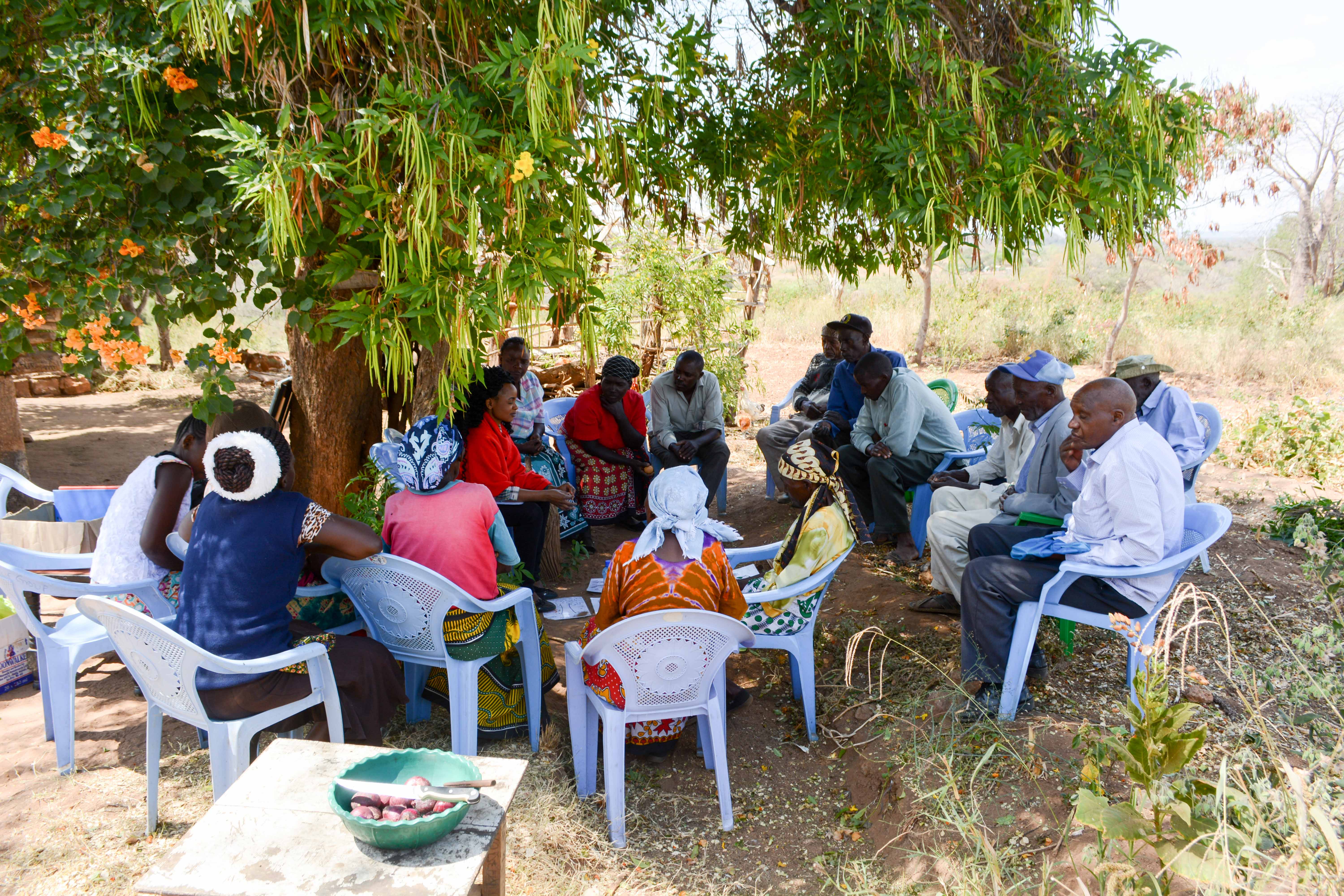This is the second year we have worked with Maluvyu Community and the Ngwatanio ya Utui wa Maluvyu Self-Help Group. Two dams and two wells have been constructed, giving people access to safe water for drinking and a source for irrigating their crops.
"We use the water for domestic use. We have also grown some vegetables and fruits. We also use the water for drinking and it does not dry during dry periods," Mr. Kyalo Mutunga said.
However, many people still must walk more than a mile each way to access the new wells and benefit from the dams.
"We have lived many years with water problems. The construction of our first sand dam has helped us solve this problem and we hope to implement more projects and bring water close to us," Mr. Sammyu Wambua Kiele said.
So we plan to construct another well and dam to ensure that everyone has safe water nearby.
Go here to view previous projects in the community and see their progress over the past few years.
Maluvyu Village is very rural and peaceful despite the fact that its close to a Peri-urban market center called Kathonzweni which is the administrative headquarters of the division. The area is generally dry and arid but that particular location where the group operates from is severely eroded. It gets pretty hot, dry and grey when it's not raining. There is a mix of both brick houses and mud, grass thatched shacks.
People either work as farmers or as casual laborers to make a living. Many of the jobs available are seasonal and often involve helping during the planting and harvesting seasons.
This self-help group is in the second year of our five-year development program. They were trained during the construction of their first successful sand dam, and have grown immensely since then.
Nearly every household now has a latrine. It’s a mixture of permanent and semi-permanent structures depending on the economic status of each household. The overall status of the latrines is improving, thanks to the previous training sessions. Most people now clean their latrines on a regular basis.
What we plan to do about it:
Our main entry point into Maluvyu Community has been the Ngwatanio ya Utui wa Maluvyu Self-Help Group, which is comprised of farming households that are working together to address water and food scarcity in their region. These members will be our hands and feet in both constructing water projects and spreading the message of good hygiene and sanitation to everyone.
Training
We’re going to continue training the self-help group members and their communities on hygiene and sanitation practices. Though our visits to households were encouraging, we want to ensure that community members are practicing the day to day habits we are not able to observe. Food hygiene, water hygiene and treatment, personal hygiene and handwashing will all be a focus during our next review.
Hand-Dug Well
This particular hand-dug well is being built adjacent to this group’s ongoing sand dam project (click here to see), which will supply clean drinking water once it rains. We have supplied the group with the tools needed for excavation. With the guidance of our artisans and mechanics, the excavated well will be cased, sealed with a well pad, and then finished with a new AfriDev pump.
Excavation takes a month or more on average, depending on the nature of the rock beneath. Construction of the well lining and installation of the pump takes 12 days maximum. The well will be lined with a concrete wall including perforations so that once it rains, water will filter in from the sand dam.
This well will be located in Maluvyu Village and will bring clean water closer to families having to walk long distances for their water.

 Protected Dug Well
Protected Dug Well
 Rehabilitation Project
Rehabilitation Project





























